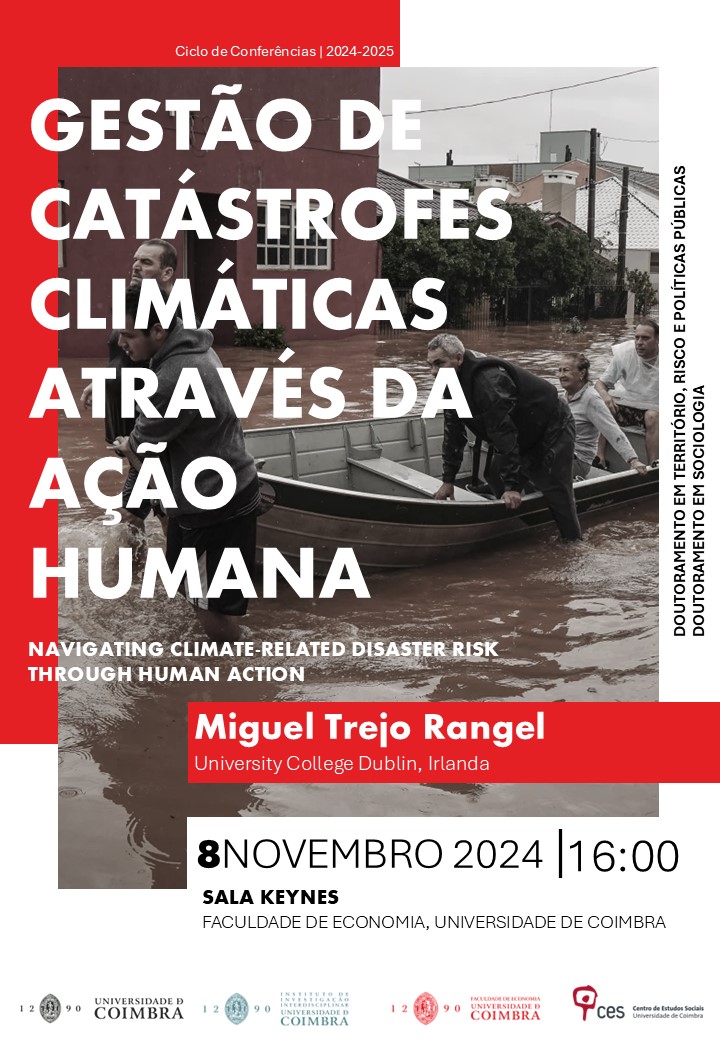Lecture
[Navigating Climate-related Disaster Risk through Human Action
Miguel Angel Trejo-Rangel (University College Dublin)
November 8, 2024, 16h00
Keynes Room, Faculty of Economics of the University of Coimbra
The risk of experiencing climate-related disasters is continuously rising due to the climate crisis led by human activities. The global temperature has increased more than 1°C, especially in the last century as well as the number of major climate-related disasters that went up from very few (~10) reported in 1990 to more than 400 events in 2023. However, disasters are not only about how we have changed the climate but also about how vulnerable and prepared humans can be to cope with hazardous events and how we contribute to creating ideal scenarios for events to become catastrophes. Climate-related disasters are usually managed with a top-down approach, and the participation of some stakeholders is often left behind. They are complex processes that require the participation of stakeholders such as government, academia, the private sector, and civil society which are at risk of suffering the impacts of climate-related hazards. This lecture will introduce key international frameworks and guidelines for managing disaster risk. Then, an example of how academics are researching the topic at the regional scale and how national policies are deploying responsibilities to adapt to climate-related disaster risk, and will conclude by presenting research initiatives to support social engagement in Disaster Risk Reduction.
Bio note
Miguel Angel Trejo-Rangel is a Senior Postdoctoral Researcher in the Environmental Policy Group at the University College Dublin. He works on the Understanding Worldviews to Inspire and Scale Climate Action (UWISCA) project that aims to identify the values and worldviews shaping climate change perceptions specific to the Irish public and designing and testing communications based on those values and worldviews. He holds a PhD in Earth System Science from the National Institute for Space Research in Brazil, an Erasmus Mundus master's degree in Water Science and Engineering - specialisation in Flood Risk management from UNESCO-IHE, and a bachelor's degree in Sustainable Management of Coastal Areas from the National Autonomous University of Mexico. Miguel has also worked as a consultant for the Humanitarian OpenStreetMap Team, the National Water Commission of Mexico, and the National Autonomous University of Mexico, and as a post-doctoral researcher in two Irish institutions, the University of Limerick and Maynooth University.
Activity within the "Conference Cycle" of the Doctoral Programme in Territory, Risk and Public Policies, with the Doctoral Programme in Sociology


